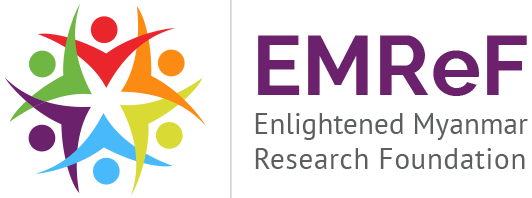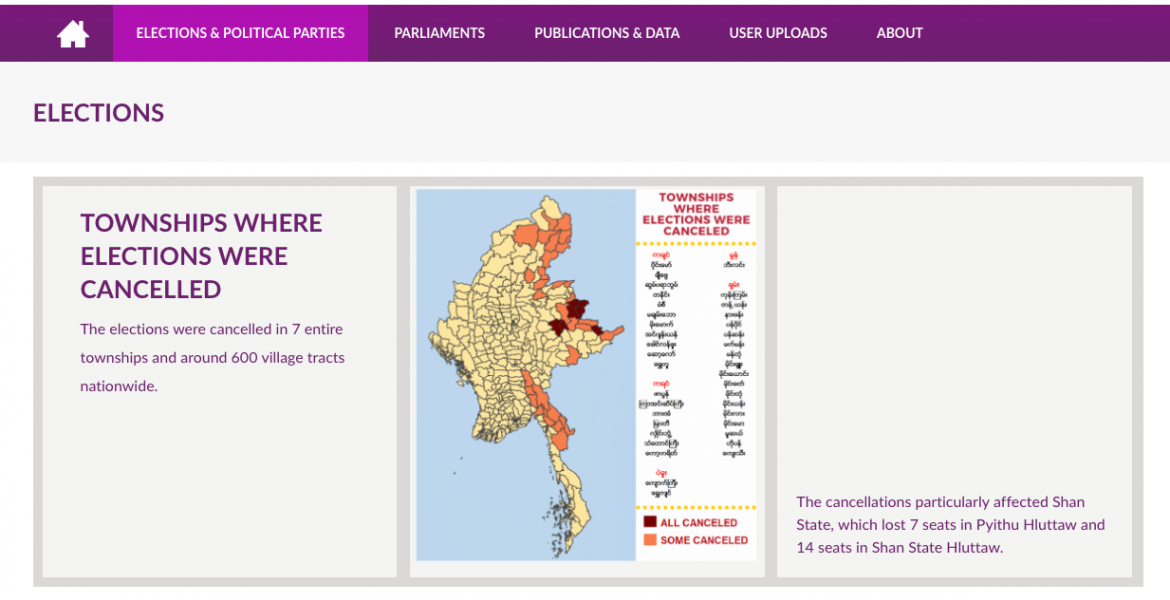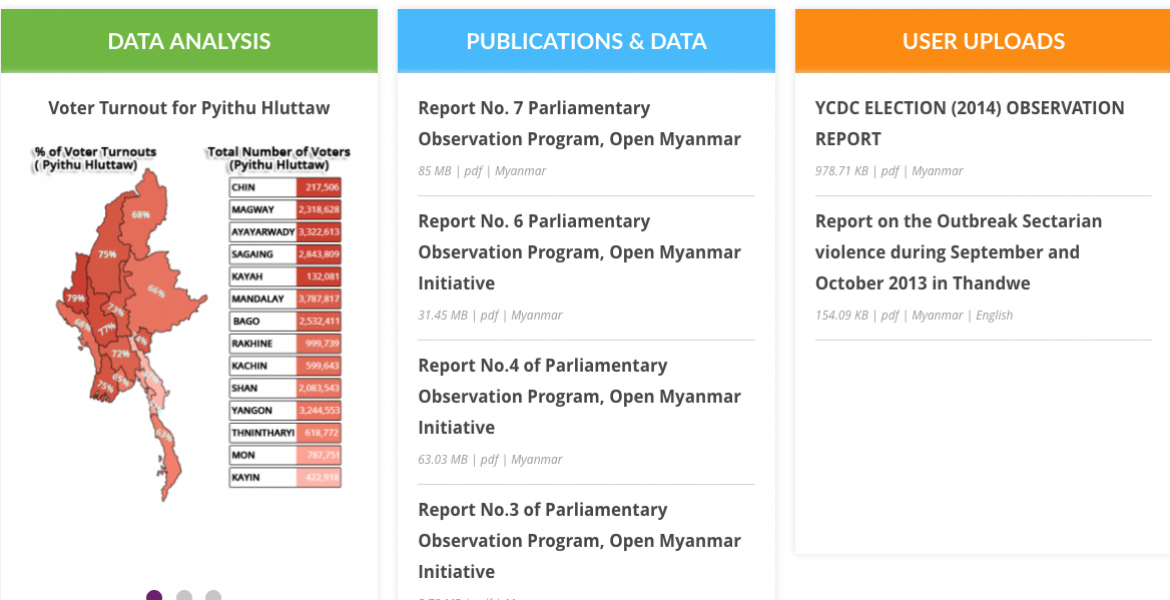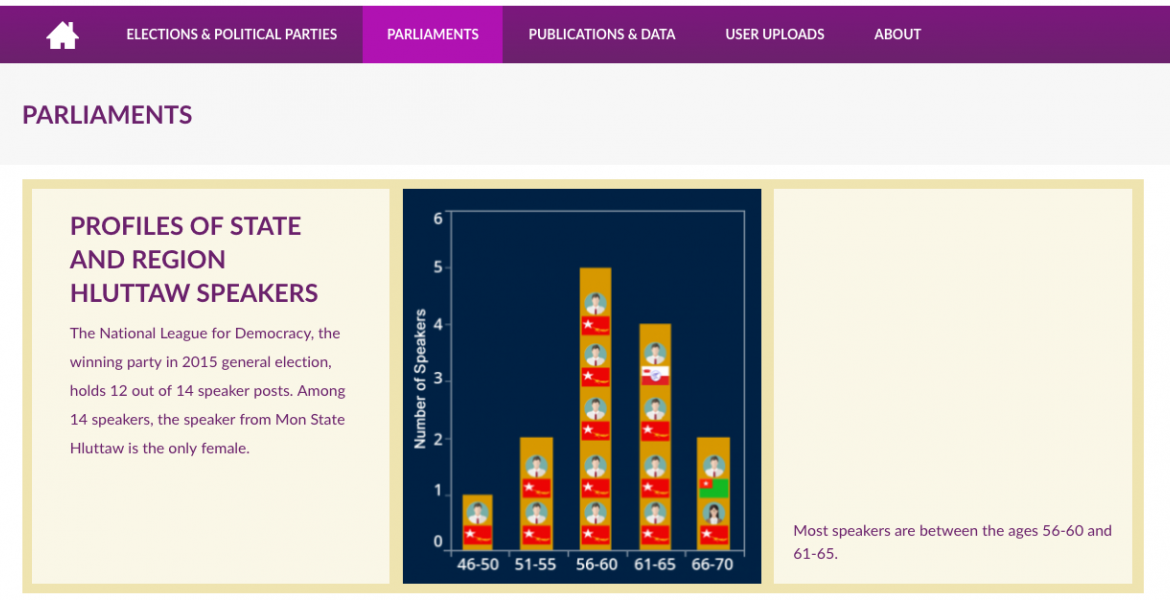Background
Myanmar has been experiencing dramatic changes since the emergence of an unexpected political transition towards a democratic system. Few Myanmar people saw the early steps toward reform coming, after the decades of life under closed political environment controlled by only few key actors, namely the authoritarian government, the military and associated business elites. Against expectations, citizens and opposition forces have witnessed some openings in the political arena for a wider range of actors to have influence. These opportunities and roles for a broader range of stakeholders involve completely new activities, processes and outcomes. Because new institutions formed out of the 2008 Constitution but also in response to the easing of repression have moved at varied paces, it has been very challenging for the majority of the population to stay up-to-date of all these changes and to participate in the process from an informed position.
The openings have also included opportunities for greater access to information, although connectivity has unleashed a torrent of inconsistent, partisan and undependable sources. This is unfortunate, given that valid and reliable information can be seen as an asset to increase well-informed and broader participation in the process, and to promote mobilization and greater capacity among like-minded progressive forces. In fact, access to good information matters not only for the general population but also for all actors involved in the process of transition, especially to counter the prevailing “trust deficit” resulting from decades of repression and civil warfare. This deeply rooted distrust is a significant barrier for several important transitional works such as peace negotiations, promotion of rule of law and justice, and efforts towards a true checks-and-balances system among three pillars of democracy- the executive, legislature and judiciary.
Given importance of sound and reliable information in the transitional context of Myanmar, EMReF and supportive partners put best of their efforts in implementing MyPILAR to provide concrete, well-analyzed and unbiased information to the people of Myanmar, civil society, and all other key stakeholders such as elected members of Parliaments (MPs), the central and local governments and political parties.
Key Objectives
- To promote data reliability, transparency and collaboration among different stakeholders;
- To facilitate evidence-based policy making;
- To enhance political participation of citizens and CSOs, standing firmly with the notions of “right to know” and “informed citizens”
Focus Areas
- Elections
- Political Parties
- Parliaments
MyPilar Mechanism
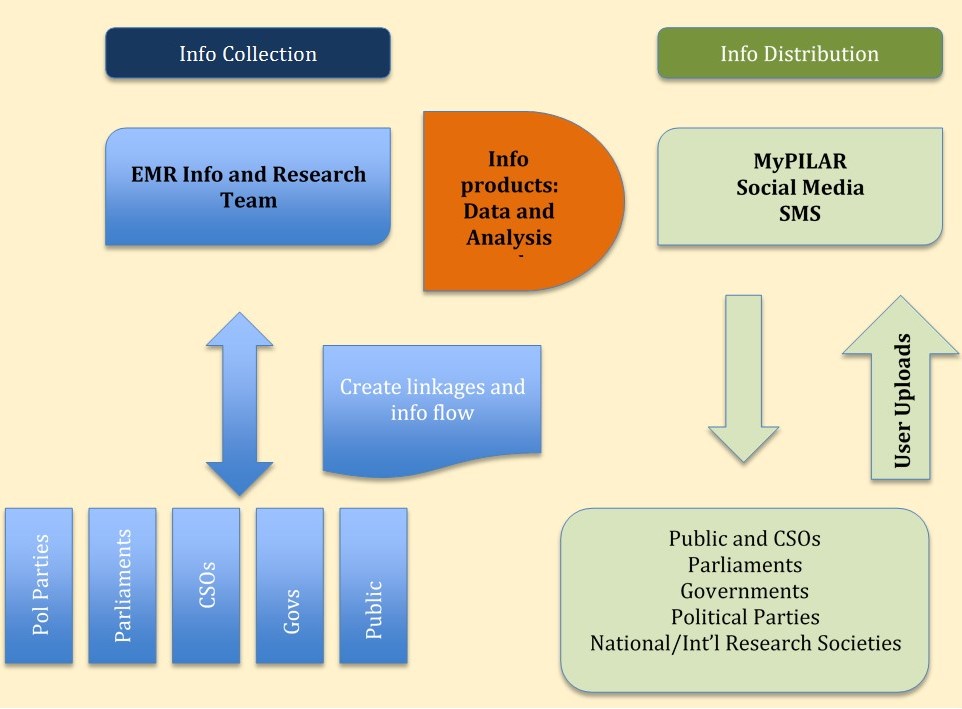
SUPPORTERS AND PARTNERS
MyPILAR is developed by the Enlightened Myanmar Research Foundation (EMReF), Myanmar Book Aid and Preservation Foundation (MBAPF) and the University of Washington. This is part of a larger program called "Information Strategies for Societies in Transition" which is supported by United States Agency for International Development (USAID), Microsoft, the Bill & Melinda Gates Foundation and the Tableau Foundation. This program is housed in the University of Washington's Henry M. Jackson School of International Studies and is run in collaboration the Technology & Social Change Group (TASCHA) in the University of Washington's Information School, and two partner organisations in Myanmar: Enlightened Myanmar Research Foundation (EMReF) and the Myanmar Book Aid Preservation Foundation (MBAPF).
Contact
EMReF
Wing (3), Room (A-305), Thitsar Garden Housing,
3rd Street, 8th Quarter, South Okkalapa Township,
Yangon, Myanmar.
Ph: +95 1 8562439
Email: [email protected]
Website: www.mypilar.org
